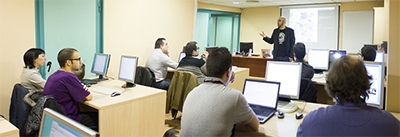Public Health
Protecting populations
| Download this episode | Public health is the science of protecting and improving the health of communities through education, promotion of healthy lifestyles, and research for disease and injury prevention. Public health professionals analyze how genetics, personal choice and the environment affect health, and develop programs that protect the health of your family and community. Overall, public health is concerned with protecting the health of entire populations. These populations can be as small as a local neighborhood, or as big as an entire country. Public health professionals try to prevent problems from happening or re-occurring through implementing educational programs, developing policies, administering service programs, regulating health systems and health professions and conducting research, in contrast to clinical professionals, such as doctors and nurses, who focus primarily on treating individuals after they become sick or injured. | Every day you are exposed to the efforts of experts in the field of public health. That water you used to brush your teeth? It met cleanliness standards and contained an appropriate amount of fluoride, designed to help prevent tooth decay. The milk that you drank? It was inspected by trained officials whose primary goal was to make sure it was fit for human consumption. The lights in your office and the filters in your air conditioner were produced to meet standards set by public health officials. When you go out to eat, one of the first things you may notice when entering a restaurant is a certificate of approval, signifying that the establishment lives up to codes set by city or state officials to ensure that you get safe food. The stories on tonight’s news shows may feature stories about research into a new drug or treatment, developed by public health scientists. The world of public health is exactly that, treating the entire world as a single patient. | Because of the broad scope that public health encompasses, there is a variety of careers within this field. Public health professionals work in both the public and private sectors. Many public health graduates will find work in the public sector in local, state, or federal agencies. The jobs available at public health agencies range from food safety inspectors to health educators, from policy analysts to epidemiologists. Other public health professionals will find work in university systems as researchers. Those interested in working for a non-profit organization can find jobs in health advocacy or research for organizations such as the American Cancer Society or a local non-profit that focuses on specific health and community issues. Still other public health professionals will find work in the private sector, working for pharmaceutical companies, health insurance companies, or as managers and chief executive officers for hospitals or health clinics. | Public health in our country can trace its beginnings to a meeting in New York City in 1872. A group of 10 health activists, all of them interested in developing a thematic approach to dealing with a number of issues, met in the home of Dr. Stephen Smith, a physician, attorney and commissioner of New York City’s Metropolitan Health Board. The group, would become the initial membership of the American Public Health Association, a group dedicated to improving the health of all U.S. residents. The group has grown over the last 150 years to have 54 affiliates around the country, all of them taking advocacy roles on issues like clean air and water, food supplies, the development of safe work environments and affordable health care and preventive health services. The physicians, engineers, lawyers and municipal officials who attended that initial meeting helped shape the specific character of today’s modern public health practices. | The Fay W. Boozman College of Public Health at UAMS celebrated its 20th anniversary earlier this month. The college fosters a community-based public health approach focusing on disease prevention, health care systems, health outcomes and inequities, and reducing health disparities. Named after the late state senator and former director of the Arkansas Department of Health, it currently offers 21 masters and doctoral degrees in such areas as occupational and environmental health, health services administration and health systems research. As of this spring, 800 students have graduated from the college, many of whom have gone on to work for the state’s Department of Health and other Arkansas health organizations. Through research in topics specific to Arkansas’ needs, such as obesity, criminal justice, tobacco and birth defects, the College of Public Health has established itself as a leader in the fight to improve our state’s health.
Transcript
The world as a patient
Transcript
Variety of careers
Transcript
Tracing the roots of public health
Transcript
College of Public Health
Transcript
